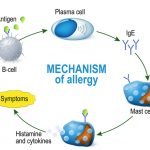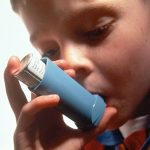-
Allergies are increasing at an exponential rate, with 50 million in the US affected each year and up to 30 percent of the world’s population affected by seasonal allergies.
-
Medical interventions come with unwanted side effects.
-
Natural solutions are available and effective.
THE ALLERGY EPIDEMIC
If you have no allergies, consider yourself very lucky.
- Prevalence. Up to 50 million people in the US have allergy attacks each year.1 http://www.aafa.org/allergy-facts/ In fact, allergies rank sixth among the leading causes of chronic illnesses.
- Skyrocketing Allergy Rates. As we’ve written in the past, a 2011 study of over two million individuals conducted by Quest Diagnostics found that the frequency of allergies in the US increased by almost six percent within a four-year timeframe, with ragweed allergies up by 15 percent. More recently, a Blue Cross Blue Shield study of 9.6 million children across the US concluded that allergy-related hospital admissions involving anaphylactic shock increased by 150 percent between 2010 and 2016.2 “Report Shows Increase in Childhood Allergy Rates and Severe Allergic Reactions.” 14 March 2018. Asthma and Allergy Foundation of America. 17 May 2019. http://community.aafa.org/blog/report-shows-increase-in-childhood-allergy-rates-and-severe-allergic-reactions Peanut and tree nut allergies more than tripled between 1997 and 2008.3 http://www.foodallergy.org/life-with-food-allergies/food-allergy-101/facts-and-statistics
MEDICAL ALLERGY TREATMENTS ARE PROBLEMATIC
The diagnosis and treatment of allergies is a nearly $26 billion market according to data from Grandview Research.4 http://www.cnbc.com/2016/09/09/allergies-are-on-the-rise-and-here-are-three-reasons-why.html Treatments involve both preventing allergic symptoms in the first place and relieving symptoms that manifest. The preventative treatments include:
Allergy Shots, which inject a small amount of the allergen into the bloodstream to build up immunity, are a form of immunotherapy, which works much like a vaccine. In other words, tiny amounts of the allergen are introduced to the body over a period of time to allow the body to learn how to manage higher levels of exposure.
- Severe Reactions are Possible. Allergy shots use doses high enough to potentially trigger an allergic reaction, including swelling at the injection site, respiratory symptoms, anaphylactic shock and even death. While severe reactions are rare—one every 160,000 shots—they do occur.5Otto, M. Alexander. “Uptick Found in Severe Allergy Shot Reactions.” 5 March 2017. CHEST Physician. 18 May 2019. http://www.mdedge.com/chestphysician/article/132705/pediatrics/uptick-found-severe-allergy-shot-reactions
- Treatment Involves Many Sessions. You need to get a lot of shots before the treatment takes—twice a week for a few months, then every two to four weeks for about five months, then once a month for the next three to five years. 6“Allergy Shots: What to Know.” WebMD. 18 May 2019. http://www.webmd.com/allergies/allergy-shots#
- Allergy Shots Take Years to be Effective. A 2017 British study found that it takes three years of treatment before the shots work better than a placebo.7MacMillan, Amanda. “9 Things You Need to Know About Allergy Shots.” 1 March 2019. Explore Health. 18 May 2019. http://www.health.com/allergy/allergy-shots
ANTIHISTAMINES AND DECONGESTANTS ARE PROBLEMATIC ALLERGY REMEDIES
As we mentioned earlier, relieving symptoms is the other half of the equation when it comes to treatment. Antihistamines and decongestants are the primary “medical” to relieving symptoms.
- As Jon Barron has written previously, antihistamines work by blocking either histamines or the allergic agent so the allergy symptoms like sneezing, itching and runny nose don’t manifest. Decongestants, on the other hand, work by drying up nasal passages after the fact and are used on an as needed basis for short periods of time only. Both antihistamines and decongestants do nothing to relieve the underlying causes of allergies. They merely suppress symptoms.
- Antihistamine dangers include fatigue, depression, nausea, vomiting, blurred vision, dizziness, blocked urinary tract, nausea, muscle pain, restlessness, a 54-percent increased risk of dementia when taken for several years, and brain tumors.8http://www.rxlist.com/allegra-side-effects-drug-center.htm#overview, 9http://www.health.harvard.edu/blog/common-anticholinergic-drugs-like-benadryl-linked-increased-dementia-risk-201501287667, In general, older antihistamines like Benadryl are riskier than newer types, like Allegra.
- Decongestant dangers include a rebound effect after several days of use where nasal blockage gets worse rather than better, nosebleeds, headaches, insomnia, irritation, a dangerous increase in blood pressure, increased heart rate, anxiety, dizziness, and seizures. Decongestant nose drops and sprays should be used for no more than three days to avoid rebound swelling in the nose and to reduce the chance of serious side effects.
NATURAL ALLERGY REMEDIES
Unlike medical solutions, a number of natural allergy solutions actually address the underlying causes of allergies and offer long-term or permanent solutions, rather than just short-term symptom relief.
- Detox. Jon Barron has written extensively about how to eliminate the cause of allergies so that allergies never manifest, by detoxing and following a Baseline of Health lifestyle. Among other things, he recommends two colon cleanses and two liver cleanses every year to rid your system of foreign proteins in your blood that trigger allergies.
- Avoid Allergens. This means choosing to avoid foods that are known to trigger allergies, such as dairy, wheat, corn, soy, eggs, additives, and processed food. It also may mean using a good air purifier inside of your house to rid the indoor air of pollens, dust, mold, dander, and any pollutants that might be irritating.
- Control Circulating Immune Complexes. As Jon Barron explains, “Large protein molecules (such as those found in wheat, corn, and dairy) that are only partially digested in the small intestine are absorbed into the bloodstream. Once in the bloodstream, the immune system treats them as invaders provoking an immune reaction. Antibodies couple with these foreign protein invaders to form circulating immune complexes (CIC’s).” You can break down CICs in your system by taking digestive enzymes with meals and proteolytic enzymes between meals.
- Try Allergy Elimination Technique (NAET). NAET practitioners gently stimulate areas along the spine using acupressure while the patient is in the presence of a triggering allergen. Sometimes, acupuncture needs to be used to complete the process or to speed it up, and therefore, many NAET practitioners are acupuncturists or chiropractors. The NAET website claims that “80% – 90% of the patients treated thus far by NAET® have experienced complete relief from their allergic symptoms to the items for which they have been treated. Most of them report that contact with previously troublesome foods or environmental substances no longer cause adverse effects.”10 http://www.naet.com/about/faq/
References
| ↑1 | http://www.aafa.org/allergy-facts/ |
|---|---|
| ↑2 | “Report Shows Increase in Childhood Allergy Rates and Severe Allergic Reactions.” 14 March 2018. Asthma and Allergy Foundation of America. 17 May 2019. http://community.aafa.org/blog/report-shows-increase-in-childhood-allergy-rates-and-severe-allergic-reactions |
| ↑3 | http://www.foodallergy.org/life-with-food-allergies/food-allergy-101/facts-and-statistics |
| ↑4 | http://www.cnbc.com/2016/09/09/allergies-are-on-the-rise-and-here-are-three-reasons-why.html |
| ↑5 | Otto, M. Alexander. “Uptick Found in Severe Allergy Shot Reactions.” 5 March 2017. CHEST Physician. 18 May 2019. http://www.mdedge.com/chestphysician/article/132705/pediatrics/uptick-found-severe-allergy-shot-reactions |
| ↑6 | “Allergy Shots: What to Know.” WebMD. 18 May 2019. http://www.webmd.com/allergies/allergy-shots# |
| ↑7 | MacMillan, Amanda. “9 Things You Need to Know About Allergy Shots.” 1 March 2019. Explore Health. 18 May 2019. http://www.health.com/allergy/allergy-shots |
| ↑8 | http://www.rxlist.com/allegra-side-effects-drug-center.htm#overview |
| ↑9 | http://www.health.harvard.edu/blog/common-anticholinergic-drugs-like-benadryl-linked-increased-dementia-risk-201501287667 |
| ↑10 | http://www.naet.com/about/faq/ |











